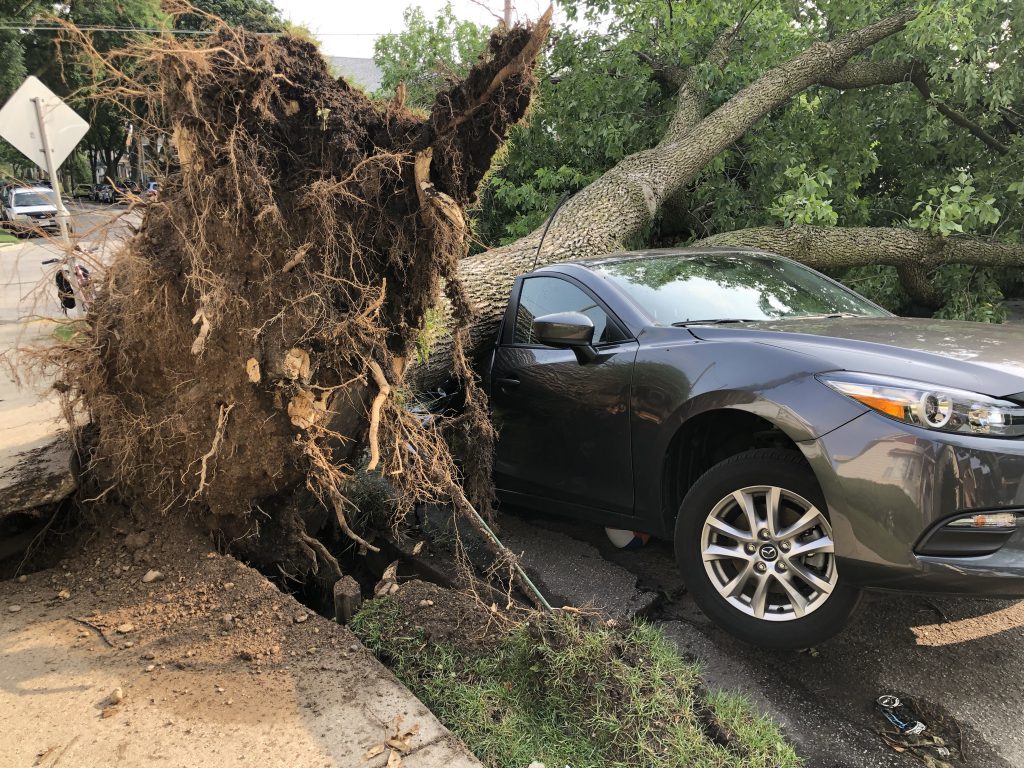Why Evers’ Office of Environmental Justice Matters
Ahead of other states responding to climate change, impact on communities and businesses.
Every year, Wisconsin is forced to spend hundreds of millions of dollars rebuilding and repairing infrastructure damaged or destroyed due to extreme weather conditions. This is growing worse because of climate change and unfortunately, these impacts are felt first and worst by communities of color, tribal nations and low-income communities. But, on Earth Day, Gov. Tony Evers established a new Office of Environmental Justice supported by a Chief Resilience Officer to help specifically address these disparities and help chart a stronger future for Wisconsin.
Between 2000 and 2020, across Wisconsin, there were 19 severe storms, two floods, and six drought-related billion-plus-dollar disasters that impacted our state to the tune of $100 billion. These impacts are not simply a financial burden. For many tribal communities, climate change and weather extremes represent both monetary damages and disruption of cultural lifeways and traditional food systems – which have been intact for centuries. Every community in our state maintains a diversity of values, with many of these values at risk due to climate extremes.
That’s why Tony Evers established the Governor’s Task Force on Climate Change. This task force, which we were proud to serve on, brought together a diverse coalition of farmers, environmental advocates, Indigenous leaders, business executives, and others. It was charged with examining our state’s vulnerabilities and to come up with ways to improve our infrastructure’s climate resiliency. We ultimately developed 55 recommendations to better adapt to and mitigate the effects of climate change, including the aforementioned creation of an Office of Environmental Justice supported by a chief resilience officer, recently enacted via Executive Order by Gov. Evers and announced at the Indian Community School in Franklin.
As the first position of its kind in the Midwest, Wisconsin’s Chief Resilience Officer is expected to play a key role in facilitating collaboration between agencies, integrating resilience planning across state agency programs, and assisting local government and Tribal Nation leaders in implementing climate resilience programs and projects in their communities.
Currently, critical information such as climate modeling, flooding and other risk considerations, and cutting-edge mitigation practices are fragmented across state government. By combining everything under one roof, Wisconsin would have a clearinghouse for local governments to be able to assess the risks on all future activities and investments. Resilience offices in other states have developed interactive tools for the public and practitioners alike to understand where future risks lie and help guide decision-making to reduce exposure of citizens and property to disaster.
Just as importantly, the Chief Resilience Officer will work to address disparities that many Wisconsinites face from environmental disasters. Last year, the EPA reported that under-resourced communities often bear the brunt of climate change. In particular, rural areas, communities of color, agricultural-based communities, Tribal Nations, and low-income populations tend to lack the resources to recover from or prepare for weather disasters. Gov. Evers’ new officer will directly engage with stakeholders and organizations most affected by climate change to ensure they have the tools and resources necessary to rebuild after a disaster and to update existing infrastructure before tragedy strikes.
Wisconsin is only one of 13 states, and the first in the Midwest, to have a Chief Resilience Officer. Having one person in charge of resiliency projects across the state gives Wisconsin an advantage in going after this federal funding, potentially bringing in hundreds of millions of dollars and employing thousands of Wisconsin residents in high-paying construction, engineering, and other related jobs.
Climate change is here and is doing billions of dollars of damage to Wisconsin. We applaud Governor Evers’ use of Executive Order to establish a Chief Resilience Officer because we cannot afford to wait any longer to protect Wisconsin’s businesses and families from extreme weather-related disasters.
Dylan Jennings is a former Bad River Tribal Council member, Heal Earth Partnership Doctoral Fellow at UW-Madison, and Associate Director of the Sigurd Olson Environmental Institute- Northland College. He served on Governor Evers’ Task Force on Climate Change.
Dr. Anna Haines is a professor and extension specialist in the College of Natural Resources at the University of Wisconsin-Stevens Point and with the University of Wisconsin-Extension. She also served as a member of Governor Evers’ Task Force on Climate Change.
If you think stories like this are important, become a member of Urban Milwaukee and help support real, independent journalism. Plus you get some cool added benefits.
Op-Ed
-
Wisconsin Candidates Decry Money in Politics, Plan to Raise Tons of It
 Dec 15th, 2025 by Ruth Conniff
Dec 15th, 2025 by Ruth Conniff
-
Trump Left Contraceptives to Rot; Women Pay the Price
 Dec 8th, 2025 by Dr. Shefaali Sharma
Dec 8th, 2025 by Dr. Shefaali Sharma
-
Why the Common Council’s Amended Budget is Good Policy for Milwaukee
 Nov 20th, 2025 by Alds. Marina Dimitrijevic and Russell W. Stamper, II
Nov 20th, 2025 by Alds. Marina Dimitrijevic and Russell W. Stamper, II





















